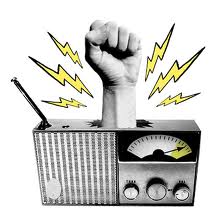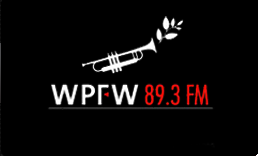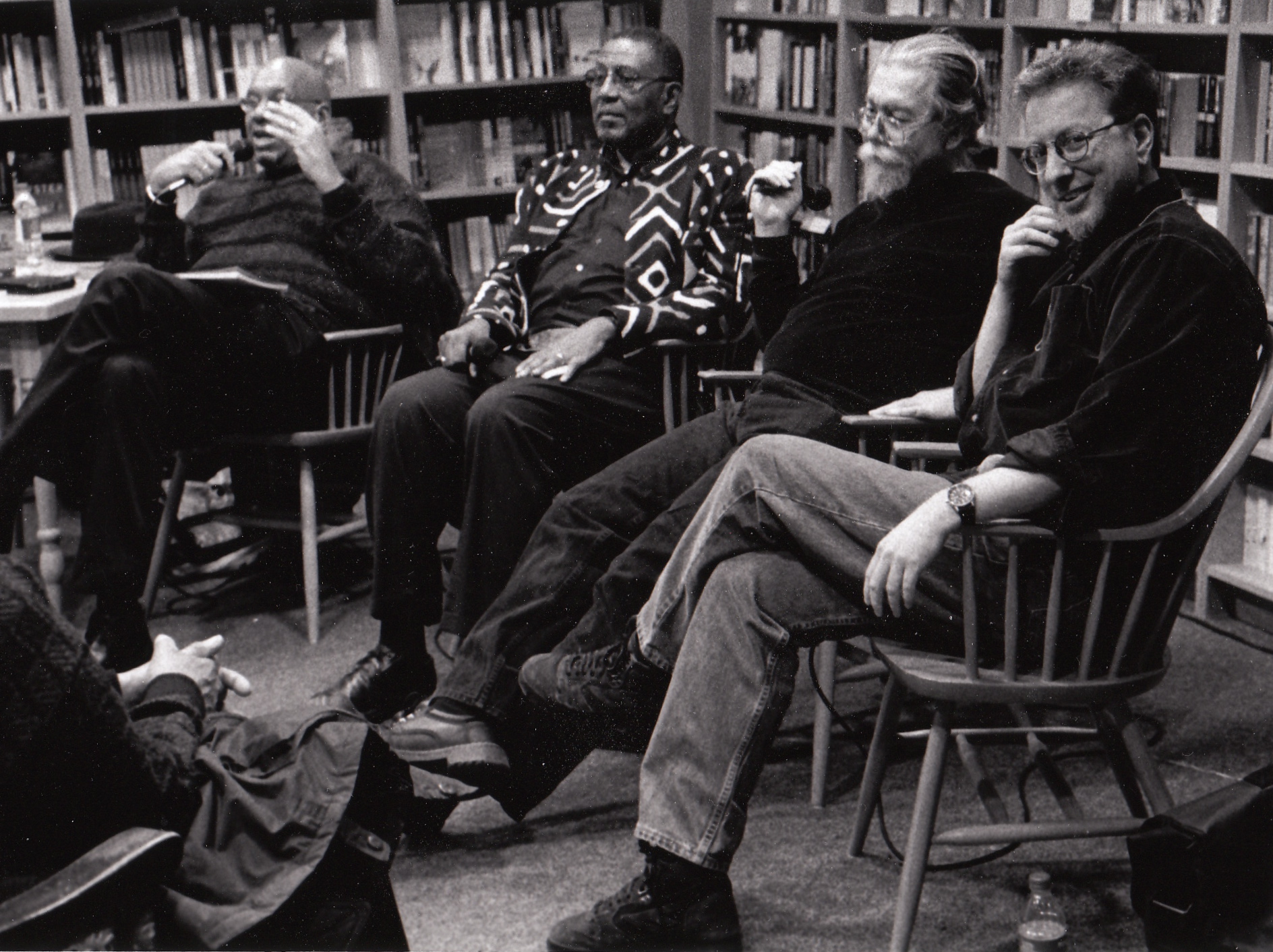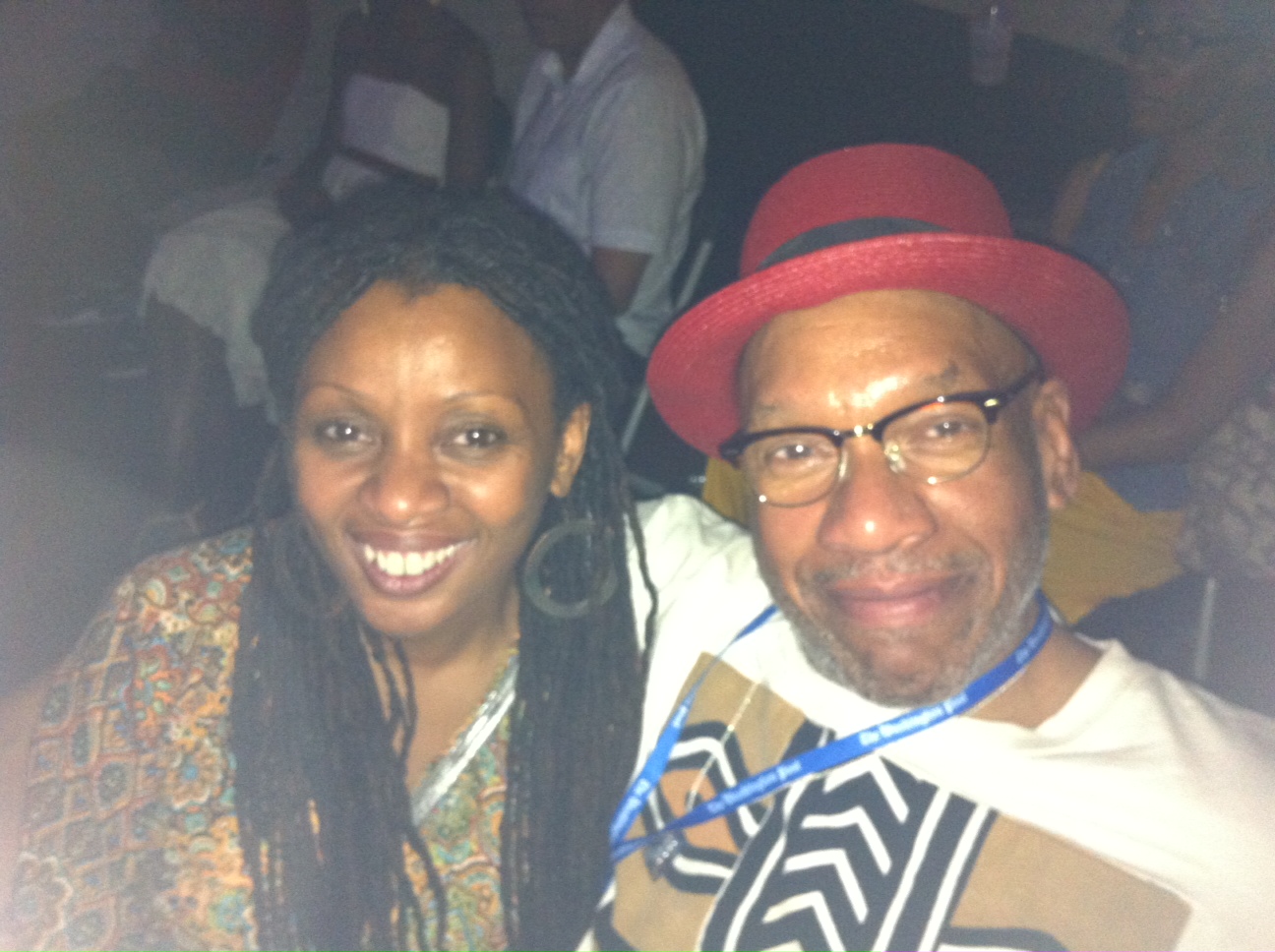Several years ago I began to take note of what for all intents and purposes appeared to be a rather edgy, kind of moveable feast of presentations at different New York club venues. The first thing that caught my attention was the impressive roster of younger artists who participated in these gigs; then I was struck by the hybridized nature of these presentations, the fact that stylistic borders were clearly and purposely blurred.
The overall operation for these events was the Revive Music Group. Curiosity led me to reach out and find out who was behind these fresh presentations. One Friday afternoon several years ago, prior to one of our Tribeca Performing Arts Center series presentations I stopped by a coffee shop just below 14th Street and met the impressive young woman who was behind this whole Revive thing, one Meghan Stablile. She’s still going strong, and coming up with fresh ideas all along the way. Just to get caught up on her background and current events surrounding Revive Music Group, some questions were clearly in order. And just how does an inquisitive girl from Dover, New Hampshire, via Texas, get so wrapped up in the care & presentation of creative music?

Just to refresh our readers on Revive Music Group, let’s go back to the organization’s origins and provide some context to your original intent and activities.
Meghan Stabile: I’ve always said that Revive Music Group began during my years at Berklee College of Music, but now I realize that it began when I first learned I could sing; this was around 7 or 8-years old. I remember singing to anyone and anything that would listen. It was my first love and it became an obsession, but later also a fear. There was not one day that went by that I did not sing or wish to sing in front of millions. A few years later – on my 14th birthday – my aunt gave me a guitar and I wrote my first song with it that very day. Singing, playing, performing and writing were an everyday thing for me. There was nothing else in the world that I wanted to do except to sing and perform. My aunt would bring me to local bars where in between Motley Crue and Joe Cocker playing from the jukebox, I would get up and perform. Performing was a great outlet, but my musical curiosity was deepening and growing. I was severely confined as a product of my environment. There was nothing around me that I could relate to musically. My chords were grungy, but my voice was soulful. Television and radio were my only source to music churning out things like Top 40 lists and MTV. That’s it. I could find maybe one classical station, but jazz was nonexistent.
Fast forward to 2003 when Berklee welcomed me into their community. My first semester was full of curiosity and eagerness. I was incredibly intrigued by everything around me. There I was in a big city filled with amazing musicians; I loved it! I remember walking through the hallways of the practice rooms at Berklee and hearing the crazy mixture of scales and exercises being practiced all at the same time. I was submersed in awe of this melting pot of musicians.
Friends kept mentioning this jazz club down the street; it was the spot where everyone was going to play. This club was the historic Wally’s Jazz Cafe. I thought to myself, ‘Get a job there so you can be in it,’ and once I got the job, boy was I in it! This was now 2004, and the regular musicians performing on the nights I worked there were Sam Kininger (Soulive, Lettuce), Nikki Glaspie (Beyonce, Dumstafunk), Louis Cato (Marcus Miller), Masayuki Hirano (Talib Kweli, Eve, Bilal), Igmar Thomas (Esperanza Spalding), Brian “Raydar” Ellis (Berklee professor), and Esperanza Spalding. I could name 20 more that have gone on to play with major recording artists. These were my peers, the people that inspired me the most in the beginning. They were more than my friends, they were also my teachers and my source of inspiration at that time.
It was at that time that I began to go through a transformation. Between the intense exposure from school and seeing it in action nightly at Wally’s, I became obsessed! I wanted to know everything: how, why, when, who, what… But at the same time a question that nagged at me the most and would later prove to be a crucial part of our purpose to this day was, “Why am I just finding out about this? Why is this music – the most beautiful and complex forms of music – so confined? Why did I have to come here to find it and why was it not readily available to me?” I asked all sorts of questions and finding the answers is what would lead me on the journey of starting Revive Music.

How have your perspectives changed since you started Revive?
At the time of its inception, jazz was our main focus. The exposure of this amazing music to more than just a community of fellow musicians, or what was presumed to be a dying audience, was paramount. In 2005 the idea of hip-hop and jazz came more into play for various reasons. I had not always been a fan of hip-hop. In the early to mid-90s I was more into grunge and rock, and then later it was Tupac, Biggie, and Jay-Z. I was listening to most of what was in my face rather than digging for anything new at the time.
So in 2005 Berklee had a slew of ensembles that you could sign up for; this is when I was introduced to the Jazz/Hip-Hop Orchestra (JHO) led by Angelamia Bachemin. This was an ensemble of 15-20 musicians taking hip-hop songs and re-imagining them live with a full orchestra. Though it was a “class,” it was done tastefully and creatively. The Jazz/Hip-Hop Orchestra was at the time, a new innovative way to combine these two genres of music. Even though it was not that long ago, you have to remember that this was already a time of resurgence. The collaboration between both genres is not a new thing at all. A lot of people think and assume that we are doing the same thing that’s already been done, and to me that way of thinking is what limits any evolution. The terms jazz or hip-hop don’t define the music. People have to categorize things to understand it and it’s just not that simply put. You can’t put everything in a box and categorize it. It’s music, and damn good music at that!
In the ‘80s and ‘90s, countless producers were sampling jazz records. DJ’s and musicians were collaborating in concert and jazz musicians were rocking on hip-hop records. The concept itself is not new. What was new is how the next generation would translate and interpret the concept. This is an evolution of the concept itself, incubating itself over time through influence, experience and the artists’ fundamental ability. It is in their nature and DNA. When it’s done from a genuine place then it’s done right and when it’s done right there’s no denying what it is.
Now everyone sees this resurgence taking place. I’ve had this exact conversation over and over with hundreds of different people in the industry and we have all come to the same conclusion. We are in a time of renewal, a restoration and a revival so to speak. I named my company Revive da Live, now known as Revive Music Group, for a reason.
I was always in preparation for a new project. Before I really even knew exactly what I was doing, I knew I had to begin with just one show. That one show led to another and so on to where I am now. No one can ever enjoy the true value of a sound without experiencing it and no one can experience it if they don’t know it exists. They can’t know it exists if someone isn’t out there showing them. This is what I do on a daily basis. This has become by life’s mission.
How do you go about engaging musicians and venues for your programs?
In the beginning it was very difficult. Venue owners and managers didn’t take me seriously. To them I was just a college kid trying to do a school project or something. Being a woman didn’t help much either. I learned how to play my cards in this business but being “in” the business was way more valuable than being fresh out of college. I took on a bunch of internships, one at Def Jam, and a few at different booking agencies and management companies. I started meeting important people and through them I would meet very important people. Some would become great friends and colleagues later on. I made sure I knew all the right people in each scene and each field even beyond the jazz realm. I also made sure they all knew me and what I was doing. Whether they took me serious or not, I knew I would see them again and our conversations would be very different. With all of that said, I think it was very important the way I approached people. I am extremely passionate about my work and what I was trying to achieve. I made that known and I was very serious about it. I didn’t just talk about it; I was doing everything I said I was going to do. When you put that serious foot down, people pay attention.
Engaging the musicians was much easier. I was already among them. Most were my friends already. When musicians from Berklee move to NYC, they eventually become a part of the scene. Anytime I approached a musician with an idea, most of the time they’d be super into it. Musicians approached me with ideas too. It was collaborative. Many of the concepts that were developed by myself or other Revive contributors were concerts built by musicians for musicians. I chose to put my own musical creativity aside and use it to develop concepts for shows that would later lead me to be a creative consultant for many notable and longstanding institutions in the music business.
Our concert ideas are innovative and new and through these concerts, I have met many incredible musicians. Robert Glasper and Chris Dave were definitely two musicians that opened many doors for me. Robert attended our first Revive show in NYC in February of 2007 and then asked me to produce a concert with him in April. That’s when I met Chris Dave and soon after went on to manage Chris for almost 3 years. Through him, I met tons of musicians from all over the world. The need for managing and booking was huge. I was just getting started myself so it was a good way to begin building careers.
I ended up building a name for myself on the management and booking side working with bands such as The Real Live Show, Igmar Thomas & The Cypher, Sonnymoon, and Chris Dave. I also did a lot work for The Robert Glasper Experiment on the side. We all knew that band was going to be huge; it was only a matter of time. I am thankful to have collaborated with them on many projects over the years.
We’ve talked about at least one potential opportunity to take your Revive activities on the road. Is that a real goal of yours or do you prefer to remain NYC-centric?
NYC is my home and it’s a prominent home for jazz and live music. We launch many of our concerts here. They say if you can have a successful show in NYC, then you can have one anywhere and that has proven to be correct. Our concerts are sought after by festivals, performing arts centers and venues worldwide. One concert we spent 3 years developing was our Roy Ayers and Pete Rock concept. We produced this for the first time at Harlem Stage on April of 2010 with The Robert Glasper Experiment, Pete Rock and Stefon Harris. Roy Ayers attended and performed later in the evening. A few weeks later I was contacted by the Jazz a la Villette Festival in Paris. We ended up bringing the show there later in the year to a 1500+ audience. It was a truly amazing experience.

We are happy to have great partnerships in NYC with venues such as Harlem Stage, Le Poisson Rouge, DROM, Zinc Bar, Smalls Jazz Club, Blue Note Jazz Club and organizations such as the City Parks Foundation and Jazzmobile who help bring our concerts to The Charlie Parker Jazz Festival and Harlem Jazz Shrines Festival respectively. Every year we produce a stage in partnership with one of the cities largest festivals, The Winter JazzFest headed by BOOM Collective & Search & Restore. We are proud to be among the cities top presenters, producers and promoters in our field. I could not have imagined this in 2007 when venues didn’t give me the time of day, but hey, now they all do!
Be it in NYC or anywhere else, we develop concerts that deserve to be produced in every city around the world. Bringing it back to our mission, the focus is on the exposure of new ideas in music and the exposure of music beyond what is readily available to people. We are still serving this purpose to bring great music to people all over the world and providing a platform for great artists and musicians to create through their own artistic expression.
We continue to develop and produce creative concerts here in NYC and work on partnering and producing them with festivals worldwide. One day, I would love to do a touring festival, much like Rock the Bells but with all live bands and all innovative musical ideas. I do believe that everything being done will eventually lead us there.
Ultimately how do you see Revive evolving, both in terms of your message and your activities?
It’s honestly quite crazy to talk about our growth because it happened so quickly. I never knew I was going to get heavy into management and booking but it turns out that had a huge purpose in the development of our concerts and our advocacy for musicians. I never knew I would be a partner in building a leading jazz website and online platform for musicians but again, it turns out that it was a part of a larger purpose for Revive in general. All of the shows, all of the hard work, all of the developments, partnerships, meetings, headaches, sleepless nights (which are not over) have all led to this day and this moment where it has all come together for a grander meaning. It all makes sense now.
We started with our concerts, we developed an online platform to promote the musicians and now there is a third arena that ties this all together to further promote the music. This is what we’ll be launching next year with our largest partnership to date.
This is the next generation of jazz music and I look forward to sharing it with audiences around the world.

How to catch up on the Revive Music Group? http://www.revivalist.okayplayer.com


















